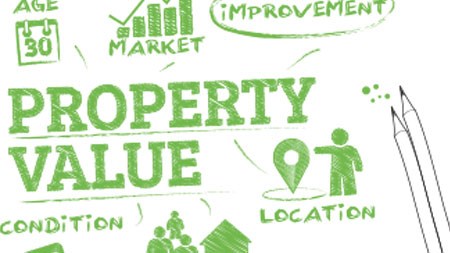Very often when a homeowner has lived in a property for an extended period of time, it is exceptionally difficult for them to detach themselves emotionally when setting an asking price, says Adrian Goslett, CEO of RE/MAX of Southern Africa.
“It is for this reason,” he says, “that many homes are initially placed on the market at inflated prices. In fact many sellers set the asking price slightly higher than what they want, anticipating buyers putting in lower offers. Although there is truth in fact that many buyers are offering less than the asking price, the danger of an over-priced property is that it could chase away buyers all together. This especially true if there are other homes in the same area offering similar features, but at market related prices. The fact is that an asking price that is market related will appeal to a far larger range of buyers, than one that isn’t.”
Goslett adds that a property that is inflated by around 10% above its market related value is much less likely to sell within 30 days of it being on the market, compared to one that is priced within 5% of its market value. He notes that an inflated asking-price can actually have the opposite effect to what the seller intended, especially if the over-pricing leads to the property sitting on the market for longer than it should and becoming stale. A home for sale becomes stale when potential buyers start to question why is hasn’t sold yet. “There is often a negative association with a property that has been on the market for longer than the average time, which can lead to it eventually selling for below its actual value,” says Goslett.
According to Goslett, the only way that sellers can know whether their home is priced correctly is by knowing how a property’s value is determined.
“Of course market conditions will pay a vital role in determining a home’s current value, along with what buyers are willing to pay for it. This will vary from one area to another taking into consideration a number of factors such as location, strength of the local market, type of properties in the area and demand for them, as well as access to amenities and the like. It is impossible to separate property prices from demand - the more sought-after the area, the higher the value of the property,” says Goslett.
He adds that an excellent way to determine what buyers have paid for properties within an area is by speaking to a reputable real estate agent who specialises in that area. They will have a record of how much properties with similar offering to the seller’s home have recently sold for in the last three to six months. “Although it is ultimately the seller’s decision, a real estate agent will have the necessary expertise to guide them with regard to setting the right asking price by performing a comparative market analysis,” says Goslett. He notes that a comparative market analysis (CMA) is the accepted method to accurately determine a property’s value.
Information and statistics are gathered from various sources and compiled together to determine the average price per square metre of property in the area. “By determining the square metre pricing, the agent is able to compare apples with apples. Once this base has been reached, it is far easier to give an accurate appraisal of the property, taking into consideration any other factors that might have an affect the properties exact value. These factors would include the condition of the property and its size, security features, finishes and fixtures, and any other features that could set the house apart from others in the areas,” says Goslett.
He concludes by saying that working with a reputable, experienced real estate agent and making sure the asking price is correct from the outset, will ultimately make all the difference in achieving the seller’s goal.

